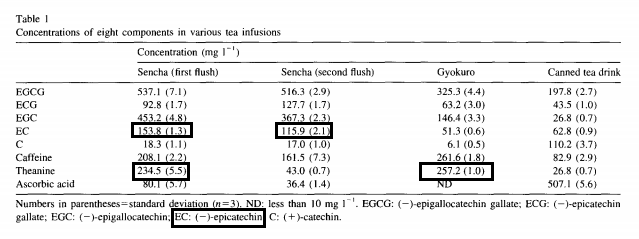One way would be to take galantamine or huperzine and see whether symptoms worsen. Bacopa is cholinergic and causes me subclincal RLS, but I'm thinking this is a T4 issue[1], [2].
Rivastigmine-Induced REM Sleep Behavior Disorder (RBD) in a 88-Year-Old Man with Alzheimer's Disease
We report the case of an 88-year-old man with Alzheimer's disease (AD) of 8 years duration (emerging shortly after the de novo onset of sleeptalking) who developed REM sleep behavior disorder (RBD) after increasing the nightly dose of rivastigmine, an acetylcholinesterase inhibitor, from 1.5 mg to 3 mg (total daily dose, 4.5 mg), as therapy for his dementia. His family then became aware of recurrent nocturnal episodes arising from sleep of his leaving bed, and he sustained multiple abrasion injuries from falling down. Polysomnography (PSG), utilizing a seizure montage with fast paper speed, conducted with the patient taking rivastigmine 3 mg at bedtime, documented 3 abrupt episodes of bilateral arm-waving with moaning and shouting that emerged exclusively during each of the 3 REM sleep periods, with the duration of the episodes lasting 8 to 25 seconds. No epileptiform discharge appeared with the onset of these REM sleep behaviors. Therapy with clonazepam, 0.5 mg at bedtime (with ongoing 3 mg bedtime and 4.5 mg total daily rivastigmine therapy), fully suppressed the sleep-related events, with prompt relapse whenever clonazepam was not taken. This is the second reported case (both males with AD) of rivastigmine-induced RBD, and the oldest reported case of RBD; and it represents reversible, medication-induced, acute RBD.
of [2]: 77. Carlander B, Touchon J, Ondze B, Billiard M. REM sleep behavior disorder induced by cholinergic treatment in Alzheimer's disease. J Sleep Res. 1996;5(Supplement 1):28.
Vivid dreams, and more. But bacopa affects other neurotransmitter systems, and this list is very like an umbrella or blanket... so who's to say these are cholinergic side effects?
Symptoms of High Acetylcholine
Subdued or depressed mood
Anhedonia (inability to experience pleasure)
Difficulty concentrating
Difficulty with higher-order or complex thought processes
Mental fatigue
Mental confusion
Memory problems
Decreased motivation
Feeling overly sleepy or tired (particularly in the evening), despite adequate sleep and rest
Difficulty understanding or performing tasks
Pessimistic, negative ideation or rumination
Feelings of helplessnes and hopelessness
Fretfulness
Irritability or anger
Emotional heightening and lability
Sadness, tearfulness
Blurred vision
Headache
Dry mouth
Altered sense of smell; heighted sensitivity to odors; olfactory delusions
Stomach pain or discomfort
Intestinal gas or bloating
Diarrhea or constipation
Nausea, dizziness, and vomiting
Muscle pain or discomfort
Joint pain, discomfort, or swelling
Tooth or jaw pain or discomfort
Tingling or numbness in arms or legs
Muscle weakness
Increased urinary frequency or problems with bladder control
Flu or cold-like symptoms
Weakening of immune system and increased susceptibility to illness
Cough
Nasal discharge
Chills or sensation of cold
Cold feet, hands
Sleep disturbance
Introversion
Anxiety
More and vivid dreaming, and higher incidence of nightmares
Decreased levels in the brain of the neurotransmitters, serotonin, norepinephrine, and dopamine
Interference with the release of the above brain transmitters, because of higher inhibition
Note: There is an inverse, antagonistic relationship between acetycholine (ACh) and serotonin (SE) in the brain. In other words as the quantity of one increases, the quantity of the other decreases. A certain amount of ACh is necessary for normal, optimal brain function. Memory, motivation, higher-order thought processes, sexual desire and activity, and sleep (among other things) depend on ACh. In lower amounts, ACh can act like a stimulant by releasing norepinephrine (NE) and dopamine (DA). However, those brain chemicals are used up (depleted) in the process; and a deficiency can occur. Too much ACh relative to other brain chemicals such as SE, NE, and DA has an adverse effect on brain function. This is because in larger quantities ACh acts like an inhibitory neurotransmitter, causing increased nervous system inhibition (depression). Important to remember is that, in general, as ACh levels go up in the brain, the levels of the other brain transmitters go down.
In terms of mood, the combination of higher ACh and NE, together with lower SE, produces anxiety, emotional lability, irritability, anger, aggressiveness, negative rumination, impatience, and impulsiveness (among other things). When NE, DA, and SE are low and acetylcholine is high, the result is simply depression. SSRI antidepressants, by increasing serotonin, are able to lower acetylcholine levels, thereby lessening or eliminating the symptoms associated with high acetylcholine. However, the major drawback is that increasing serotonin also leads to a reduction of norepinephrine and dopamine in the brain. Therefore, long-term use of SSRI antidepressants will result in a high serotonin condition, which is actually another type of depression (see separate article on this site about serotonin). So, in spite of all of the publicity and common usage, SSRI antidepressants are really not the best choice (at least, not in the long run) for treating depression. Unless the problem of low NE and DA is also addressed, a high acetylcholine depression, in time, will merely be replaced by a high serotonin depression. This explains why SSRI antidepressants do not help everyone, lose their effectiveness over time, make some people more depressed, or cause intolerable side effects.
Generally, ACh levels in the brain will increase proportionately to the amount of choline in the diet. However, ACh levels will also become higher for other reasons. Whenever there is interference with the release of the other neurotransmitters, or their levels have fallen, ACh levels will automatically increase. This is due to the balancing effect between all of the brain transmitters, whereby a decrease in one resuts in a relative increase in the other.
Foods that significantly increase ACh: eggs, fish, soybean products, foods (wide variety) containing lecithin, wheat germ.
Supplements that significantly increase ACh: choline, lecithin, fish oil, flaxseed oil, other.
Other things that increase acetylcholine: MSG (monosodium glutamate), medications, chemicals, physical activity (exercise, work).
Note that some people are more sensitive to choline and, therefore, will experience greater problems than usual with the consumption of the above foods and supplements. Also, reaction to choline may be age-dependent, with older people generally experiencing more sensitivity.
For more information, see:
http://www.acnp.org/...1000095/CH.html
http://www.yalescien...-of-depression/

























































